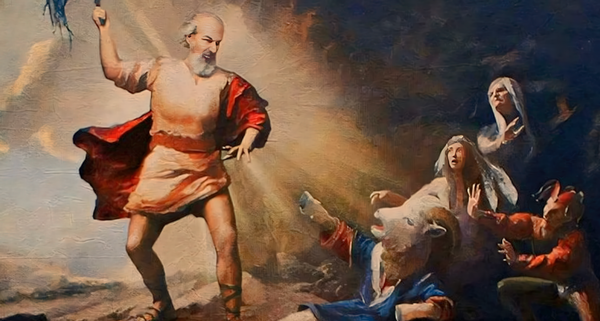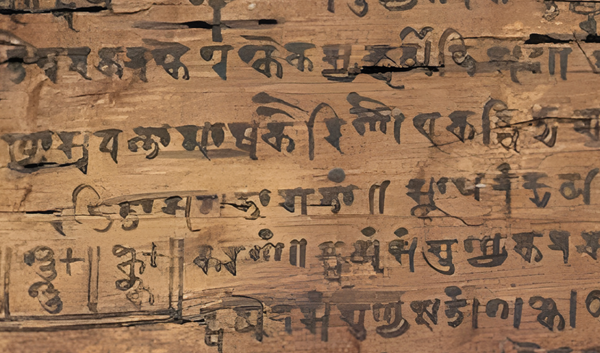Babel: Listen and Try to Understand

Two solid conclusions that come out of modern mathematics and physics is that all matter is connected and that once two particles come into contact with one another, they are forever connected. Another conclusion, from chaos theory, is that events that seem completely unrelated and inconsequential can be connected in a profound way. The most common metaphor given is the butterfly flapping its wings in Central Park. The idea is that a butterfly flapping its wings in one spot on the planet can cause a hurricane or tsunami on the other side of the world. It goes back to all things being connected and all actions having a reaction.
What if physics only has it half right? What if, as Buddhists and Brahmans have always believed, that this applies to the spiritual world as well? What if all things are connected, not through matter, but through spirit? What if our actions can have profound effects, on people we've never even met, on the other side of the world?
I had a chance to see Babel over the holiday weekend. The movie is by the same director that gave us 21 Grams, Alejandro González Iñárritu. A great quote from Beethoven applies to Iñárritu, “It is the power of music to carry one directly into the mental state of the composer. The listener has no choice. It is like hypnotism.” Well, I was hypnotized by the music, the story, and the cinematography. These elements added depth to the already layered, complex story about the interconnectedness and misunderstanding of a multicultural world. There are many political and social commentaries within the movie but I will ignore what I saw as a more superficial layer of the movie and focus on what I saw as the main theme buried under all these layers.
The term Babel comes from Genesis 11:1 in the Bible. This is where we get the modern word, babble, meaning noise or confused speech. The chapter is about men building a town to reach heaven:
Come, let us go down Lord confuse their language so they will not understand each other. So the Lord scattered them from there over all the earth, and they stopped building the city. That is why it was called Babel - because there the Lord confused the language of the whole world.
Of all the destructive acts a person can commit, there seems to be something particularly unnatural about suicide - as if suicide creates a small tear in the fabric of spirit and like a vacuum consumes everything around it. In Babel, it is suicide that begins a chain of events that link together four families from very different parts of the world: Japan, Morocco, America, and Mexico. In Babel, the suicide of Yasujiro's wife creates such a tear – many would call this karma – except in this case particular individuals and their families become accountable for an event by a person they’ve never met in a country they’ve never been to. In short, karma takes the following path
- Yasujiro's wife commits suicide with his hunting rifle
- which devastates Yasujiro’s daughter (Chieko) and causes
- Yasujiro to give his rifle to a Moroccan man
- who sells the rifle to the Moroccan father of two boys (Yussef and Ahmed) who
- shoot at a bus and hit an American woman (Susan) with her husband (Richard) who
- left their children with their Mexican maid (Amelia) who
- take the children with her nephew (Santiago) to Amelia’s son’s wedding
- where the maid leaves the children in the desert
Another subtle theme running through the story is that children are always experiencing the consequences of adult’s decisions. The boys were too young to be allowed to have a rifle, the maid should never have taken the children to Mexico, the mother should never have committed suicide, and the American couple should have never left their children with a maid while traveling to Africa.
In karma, something has to break the cycle. The only truly selfless person in the story is the Moroccan tour guide (Anwar) who helps the American, Susan - who has been shot - by taking her to his village. The whole village helps to keep the woman alive while help arrives from the US embassy. Finally, as an American helicopter arrives to airlift Susan to the hospital, Richard offers Anwar money for his help saving his wife’s life. Anwar refuses and only gives only a hint of a smile that he was happy to help keep this woman alive. For me, the movie slowed down to almost a pause as he declined this gesture of thanks. The story could be divided into before this event and after. Anwar broke the chain of events by doing something truly selfless to counter the truly selfish act of the suicide.
In a story that could have ended in disaster for all involved, this one act of kindness breaks the cycle. Unfortunately, before the cycle is broken one of the Moroccan boys (Yussef) is shot and killed, Amelia is deported, and Santiago is probably dead. However, after the cycle is broken, Chieko does not throw herself off of the high-rise balcony, Susan and Richard’s children do not die in the desert, Amelia does not die of dehydration, Ahmed saves his father by turning himself in, and Susan lives. Had Anwar accepted the money I believe they would all have died and the suicide of Chieko would have perpetuated the karmic chain of events. I’m still left wondering what was written in the letter Chieko gave to the detective.
Sometimes it takes a selfless act to reset the delicate balance of life. Sometimes our actions effect people we will never meet in places we will never go. To break the cycle we don’t have to save the world we only have to be saved ourselves. Listen and try to understand what is going on around you.




